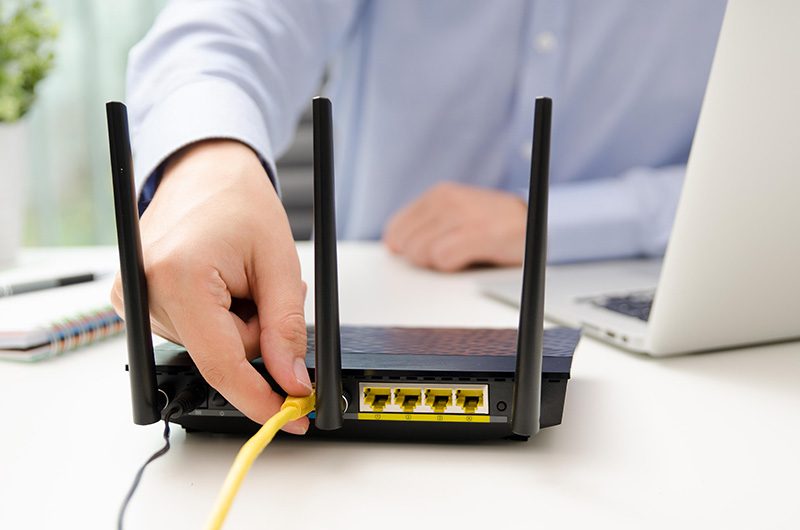Absolutely not.
I won't go into great length, as this is a huge topic with many facets, but bluntly, there are many actors that one needs to be aware of. For example, you need to protect against someone that has close proximity to your network/devices and can attempt to gain access over time. Then there are remote actors that do not have physical access to your network but have time and resources, and then take as Ken asks, what about HikVision themselves i.e. the manufacture of equipment. That is yet another level of actor to protect against.
In case 1 & 2 (local and remote attackers), they need to social engineer the passwords from you, hack your network, or exploit a vulnerability and they would gain access. In the latter case i.e. a manufacture, they are the owners of a closed system which they own all the code to and which is not reviewed by external sources. Thus they could include backdoors, or anything of this nature, to view your cameras, enable microphones, etc. This is why people prefer open source software when it comes to security, because anyone can both write the code but also makes it available for others to review.
This is true of any manufacture, and I will not go into which may and may not have nefarious intentions. My point is generic.
The truth is, each one of us needs to weigh up the risk profile of yourself and your appetite for using technology. No one will be interested in viewing my driveway, even if Hikvision (or other) manufacture had access, but then they may have interest in you, or someone else because they are valuable target.
Simply put, you can invest in locking your network down, only using internal lan/vpn and making sure to avoid manufacture platforms like HikConnect, but then costs increase and so does effort. Always worth saying, nothing is 100% secure, and the most secure method is airgaps i.e. not connecting your devices to any public network AT ALL.



